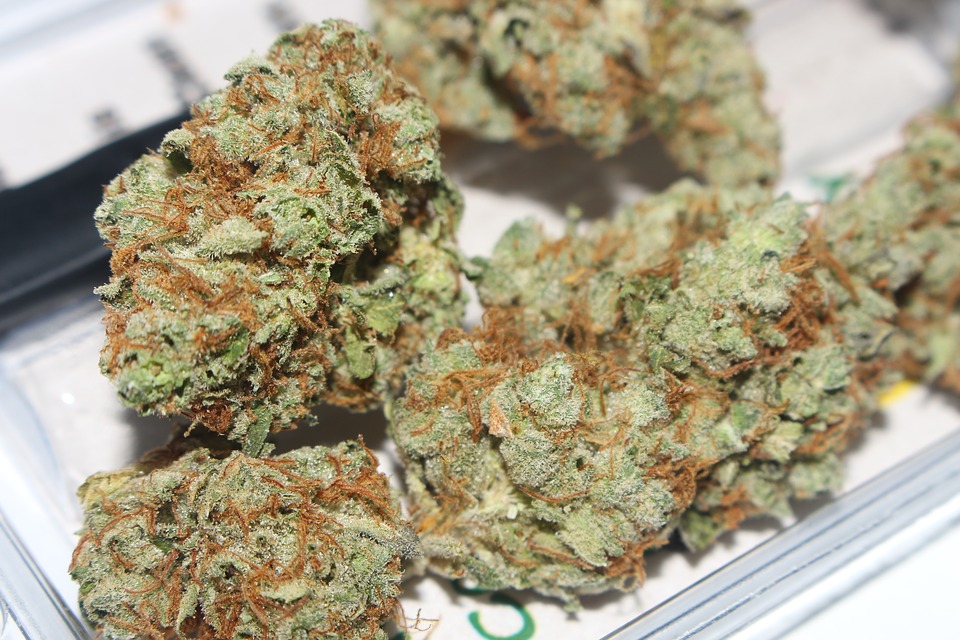Whilst cannabis has been shown time and time again to be effective at treating chronic pain and managing conditions like epilepsy and Alzheimer’s in some people, recent research is proving that a specific chemical compound in cannabis, cannabidiol (CBD), may even help heal bones and make them stronger.
Scientists in Israel, a country at the very forefront of cannabis research, have published the results of a combined study conducted primarily by researchers from Hebrew University of Jerusalem and Tel Aviv University, which shows that CBD enhances fracture healing and stimulates Lysyl Hydroxylase (a highly abundant enzyme involved in bone healing) activity in osteoblasts (bone building cells).
Groundbreaking Israeli study
The groundbreaking study, published in 2015, saw scientists inject either pure CBD or a combination of CBD and THC (the psychoactive component of cannabis) into rats with broken thigh bones. The results showed that pure cannabidiol (CBD) helped the broken thigh bones of rats heal “significantly” quicker and stronger than those in the control group.
The study was made up of three separate experiments. In the first experiment, THC or CBD was injected into rats with fractured femurs to test the cannabinoids’ effects on the structural and mechanical properties of fracture healing. The second experiment looked at the effects of equal amounts of CBD and THC on a fracture callus (a connecting bridge remnant of a healed fracture). In both experiments, the molecular composition of the bone was monitored for eight weeks using Fourier Transform Infrared Spectroscopy (FTIR). The third experiment analyzed the effects of THC and CBD on the expression of osteoblast (bone-building cells) enzyme lysyl hydroxylase that catalyzes collagen crosslinking (bone healing).
Remarkably, the researchers estimated that bones treated with pure CBD were 35-50% stronger than bones left to heal by themselves, making them less likely to break again in the future.
These findings could lead to new treatment options for people suffering from certain bone-related diseases, such as osteoporosis, which plays a part in up to 8.9 million fractures annually worldwide, according to the International Osteoporosis Foundation.
The team of researchers at Tel Aviv University that tested the effect of THC and CBD on rat subjects explained the results of their study via CBD’s interaction with the body’s own endocannabinoid system. They highlighted a connection between our bodies’ cannabinoid receptors and bone growth stimulation.
“We only respond to cannabis because we are built with intrinsic compounds and receptors that can also be activated by compounds in the cannabis plant,” one of the researchers said at the time of the study.
The study also highlighted the importance in detaching the therapeutic uses of cannabis with its psychoactive effects. Speaking to the Times of Israel, Dr Yankel Gabet from Tel Aviv’s Bone Research Laboratory, said: “The clinical potential of cannabinoid-related compounds is simply undeniable at this point.
“While there is still a lot of work to be done to develop appropriate therapies, it is clear that it’s possible to detach a clinical therapy objective from the psychoactivity of cannabis.”
This study backs up previous research which confirms that CBD and cannabis rich in CBD has great potential to treat certain conditions such as bone disease and osteoarthritis without the psychoactive effects commonly associated with cannabis use. This is good news for people with bone issues, and will hopefully go a long way to remove some stigmas surrounding cannabis.
“After being treated with CBD,” Gabet continued, “the healed bone will be harder to break in the future. Other studies have also shown CBD to be a safe agent, which leads us to believe we should continue this line of study in clinical trials to assess its usefulness in improving human fracture healing.”
Not quite that simple
Unfortunately, as is the case with much of the research surrounding cannabis, when it come to cannabinoids and human bones, things are not so simple.
A 2016 study found that chronic cannabis consumption was associated with a lower bone density. The study looked at 170 participants and found bone fractures were more abundant in those who were ‘heavy consumers’ of cannabis (in that they had consumed cannabis over 5,000 times throughout their lives).
There is few things worth noting about this study, however. Not least the finding that “moderate consumers” did not show an increased risk of fracture. The study’s authors also articulated that cannabis consumers had a lower average weight and BMI, which may well account for the reduction in bone density.
There is also a 2009 study which found that cannabis may reduce bone strength in younger people. The same study went on to say that cannabis has the opposite effect in older adults, with the authors even going as far to suggest that these findings may be beneficial for the future treatment of osteoporosis in the elderly.
This complements indications that cannabis can have disruptive effects on the developing brain, whilst offering neuroprotective properties to older subjects. Although much more research needs to take place before any definitive conclusions can be gleaned from these findings, it does seem to suggest that cannabis may be more beneficial later in life. It’s a confounding paradox.
Early days
Let us remember that the endocannabinoid system was only discovered in the 1990’s and research into it is very much in its infancy. What we do know, however, is that the endocannabinoid system is involved in a variety of physiological processes including appetite, pain-sensation, mood, digestion, hormone levels, memory, and much more. It seems to work to produce a kind of natural balance in the body (or homeostasis), which in turn leads to wellness.
Whilst we are aware that cannabis interacts with the endocannabinoid system – with many studies on cannabis proving very promising – many are also often confusing and contradictory.
Things are looking bright, however. Over the coming years, research will undoubtedly reveal more and more about how this miraculous plant works within the body, and in time we will learn how best to utilize cannabis in a therapeutic setting. In fact, judging by this recent Israeli study, CBD may very well be one of the most novel and effective treatments for healing and strengthening broken bones.
[Image credit- Pixabay]








